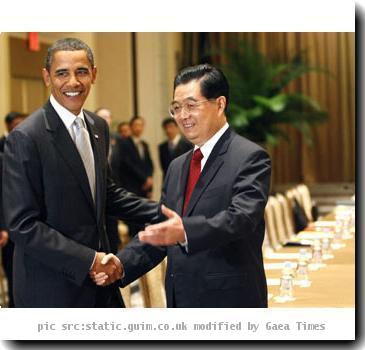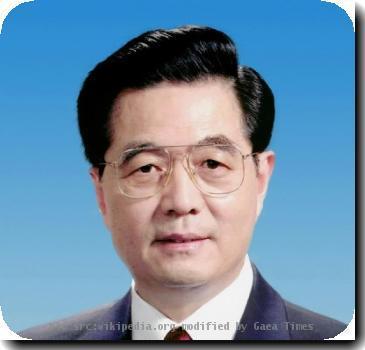Chinese officials pledge firm action to hold down surge in home prices, fix health system
By Gillian Wong, APMonday, March 8, 2010
China vows moves on property prices, health care
BEIJING — Senior Chinese officials vowed Monday to rein in skyrocketing home prices, make medical services more affordable and improve social security, key issues that have provoked widespread discontent that the government fears could threaten stability.
The issues, in particular property prices, have ranked high in surveys of the public on what topics they think should be tackled by China’s legislature, known as the National People’s Congress, at its annual session that ends Sunday.
Chinese leaders worry that a stimulus-driven torrent of bank lending is fueling a dangerous bubble in stock and real estate prices. Property speculation has frustrated the ambitions of many would-be home buyers, while newspapers are filled with reports of well-heeled investors paying record prices for luxury apartments and villas.
Housing Minister Jiang Weixin said at a news conference Monday that the government would increase the stock of affordable housing and crack down on developers who hoard land and apartments to force up prices.
“The central government is resolute in reining in the runaway price rise,” Jiang said, pointing also to recent moves to curb bank lending and limit multiple home ownership.
The government said last month that the rise in housing costs in 70 Chinese cities accelerated in January, jumping 9.5 percent from a year earlier, up 1.3 percentage points from December’s growth rate. In Beijing and Shanghai, they have soared to an average of more than 12,000 yuan ($1,700) per square meter, double the level three years ago, according to a December report by U.S. bond manager Pimco.
Jiang added, however, that given the limited land on which to build and rapid urbanization and industrialization, there was only so much the government could do. “The upward pressure for housing price for the next 20 years is still great, because the demand will be huge.”
Also briefing reporters were Health Minister Chen Zhu, who stressed the government’s commitment to advance the overhaul of the country’s ailing health system, and Hu Xiaoyi, vice-minister of human resources and social security, who pledged to improve the welfare for the elderly and migrant workers.
Chen urged lower-level governments to invest more money into health care, saying public spending as a proportion of medical expenses, which stands at 25 percent currently, is “still too low.”
“At a time of financial crisis, local governments are most willing to spend on projects related to economic development. They wouldn’t blink an eye in spending millions of renminbi (dollars) on economic projects, but when it comes to health projects, why are they so reluctant to spend?” Chen said.
The high cost and poor availability of health services are among the biggest complaints of the Chinese public. China last year announced it would be pumping in 850 billion yuan ($124 billion) to reform the system over three years to provide basic medical coverage and insurance to all of the country’s 1.3 billion people.
Also Monday, Chinese leaders discussed moves to boost representation for its dwindling rural population in the national legislature as part of a new push to narrow the burgeoning development gap between city and countryside — another topic that has triggered public concern.
Once an overwhelmingly rural society, China is urbanizing at an accelerating rate, with 43 percent, or 560 million people, now living in the cities, according to official figures. The urban population has risen 7 percent in the last five years.
There are nearly 3,000 members of the National People’s Congress, but members from urban areas represent just one quarter the number of constituents as their rural counterparts. That was originally intended as a way of protecting the interests of what had been a small urban minority surrounded by hundreds of millions of farmers.
An amendment to the election law erasing that distinction will be passed before the close of the annual session of the National People’s Congress on Sunday.
“This change helps fill the need for equal development rights,” said Miao Zhi, a delegate from the western, largely rural, region of Xinjiang. “It’s a step forward for the human rights cause.”
The move is in keeping with President Hu Jintao’s pledges to improve conditions for the bulk of the population getting by on the average rural per-capita annual disposable income of 5,153 yuan (about $750) — or in some areas, much less.
Like many large developing nations, China’s city-countryside divide is vast, with rural residents earning incomes that are on average just one-third of urban ones. Schools, hospitals, recreational facilities and government services lag far behind those in the cities.
Associated Press writer Christopher Bodeen contributed to this report.
Tags: Asia, Beijing, China, East Asia, Government Pensions And Social Security, Greater China, Health Care Costs, Health Issues, Hu Jintao, Municipal Governments

